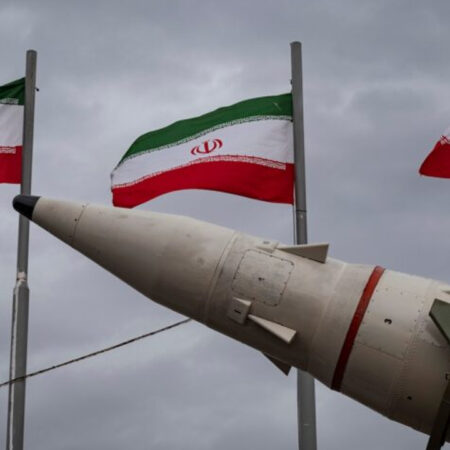On Friday, Khawaja Asif, the minister of aviation, declared that Pakistan International Airlines (PIA) will no longer be prohibited from flying to Europe by the European Aviation Safety Agency (EASA) and the European Commission.
In June 2020, the EASA prohibited the airline from operating on its most profitable routes in Britain and Europe. Following a PIA plane crash in Karachi that claimed almost 100 lives and a scandal involving purportedly forged pilot’s licenses that was triggered by allegations made by Ghulam Sarwar Khan, the aviation minister during the PTI era, action was taken.
The airline lost around Rs 40 billion in revenue annually as a result of the ban. The European Commission Air Safety Commission delisted Pakistan from its concern list on May 14, which Minister of State for Finance and Revenue Ali Pervaiz Malik told the National Assembly in June was a “positive development” and that PIA flights to Europe were expected to resume shortly.
Asif asserted in March that PIA flights to the UK would start up again shortly after receiving EASA clearance by the middle of May. Conversations with “relevant quarters” served as the basis for the minister’s statements.
“It is a momentous day to announce that the European Commission and EASA have lifted the suspension on PIA flights to Europe,” he wrote in a post on X today.
He said that AirBlue has also been granted third-country operator authorization.
According to Asif, the aviation ministry’s “full focus” on bolstering the Pakistan Civil Aviation Authority (PCAA) and guaranteeing safety monitoring in accordance with the International Civil Aviation Organization’s (ICAO) standards made the progress feasible.
“The PCAA Act, the seamless separation of regulators and service providers, the appointment of professional leadership, and capacity-building training are just a few of the important steps our government has done to strengthen PCAA.
“We are committed to ensuring aviation safety in Pakistan, and I am grateful to the European Commission and EASA for conducting a transparent process.”

“Over the past three years, our civil aviation bodies have worked very hard to meet European standards,” he stated. “We’ve had several audits during this time, and we’ve complied with their requirements.”
He expressed hope that operations bans in the UK would also be abolished and sought to benefit from the lifting of the ban.
Asif went on to say that FlyJinnah and other airlines were also going through the audit procedure.
The minister responded, “We are hoping to resume operations as quickly as possible,” when asked when Pakistani carriers would start operating flights to Europe again. It’s a matter of time now, but I can’t tell you the precise day.
Asif said that before restarting operations in Europe, PIA, which is now undergoing privatization, needed new planes for its fleet.
He clarified, “PIA has a severe lack of aircraft to operate on these new routes.” In reference to the privatization process, he continued, “It will also help PIA’s price recover.”
Asif claimed that the reaction to our initial phase of privatization was subdued. “Receiving these routes once more is a significant value addition to PIA and will increase its appeal to any buyer.”
The minister reaffirmed that “we will do it quickly” but noted that the transaction will need to be reworked.
Asif expressed his appreciation to Prime Minister Shehbaz Sharif for helping to resume services. He kept a careful eye on this process, and we met often to discuss it. We must consider buying airplanes and privatizing the company; these are choices that will be made in the days ahead.
“The process was extremely tough and demanding, and it represents a significant accomplishment for the aviation ministry and civil aviation organizations,” the minister said. “We hope that additional prohibitions will be lifted and that PIA, whether it be state-owned or private, will resume operations.”
The PCAA’s involvement in safety monitoring was extensively evaluated during an on-site review that took place from November 27 to 30, 2023, and several issues were found.
Despite the authority being manned by technically qualified individuals, these included serious understaffing in the Flight Standards Directorate and departures from established safety protocols.
On May 6, the PCAA responded by outlining steps to address the identified shortcomings in a corrective action plan. In May, a session with the EU safety committee covered this concept.
The EU Air Safety Committee came to the conclusion that “the regular organization of technical meetings in Brussels before each EU Air Safety Committee and regular progress reporting from PCAA should be given particular attention to the continuous monitoring of the safety situation and developments in Pakistan.”
Additionally, if necessary, it maintained the option to invite the PCAA to a follow-up hearing at the next EU Air Safety Committee sessions.
In order for the PCAA to function properly, the commission also emphasized the necessity of the government’s ongoing support and the significance of maintaining leadership stability within the authority.
“The commission believes that there are currently no grounds for changing the list of airlines that are subject to an operating ban within the union with respect to air carriers certified in Pakistan, in accordance with the common criteria set out in the regulation,” the report stated.
It further stated that EU member states should prioritize ramp inspections of air carriers certified in Pakistan in order to continue confirming their effective adherence to pertinent international safety standards.
“Further action by the commission may become necessary, in accordance with regulation, where any relevant safety information reveals imminent safety risks resulting from non-compliance with the relevant international safety standard,” the statement read.
The prohibition
In June 2020, EASA suspended PIA’s permission to operate in Europe for a period of six months. The agency made the decision to prolong this ban for a further three months, until March 2021.
The action came after 262 pilots were grounded for having “dubious” licenses, as previous aviation minister Ghulam Sarwar Khan had described them. There were 141 pilots from PIA, nine from Air Blue, ten from Serene Air, and seventeen from Shaheen Airlines, according to the had minister.
His declaration had raised alarm around the world. The preliminary assessment on the PIA May 2020 flight crash in Karachi sparked the action on the “dubious” licenses. It was discovered that the pilots of the aircraft ignored alarms and did not adhere to established procedures.
In April 2021, EASA ordered the PCAA to have the ICAO conduct its safety audit and prolonged the travel restrictions placed on PIA for an indeterminate length of time.












No Comment! Be the first one.